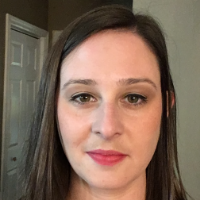As data repositories strive to meet the FAIR data principles and to solve the reproducibility crisis in science, it is essential to implement a comprehensive solution for data citation with persistent identifiers. Despite this imperative need, data citation is a fairly new effort in the research community that requires technical and cultural change. Fortunately, funders and journal publishers are now recognizing datasets as first class research outputs, accelerating the demand for data citations.
To address this challenge, Ocean Networks Canada (ONC) has undertaken an enormous effort to allocate Digital Object Identifiers (DOIs) to our dynamic datasets. Often DOIs are assigned to research objects after work is complete, when the object is static and unlikely to change. However, ONC provides access to near real-time data, such that citation capabilities are needed before the end of an instrument deployment and data is still accumulating. Moreover, datasets are versioned as needed for corrections and enhancements. Assigning DOIs for dynamic data has several challenges.
This session will describe the technical implementation of DOIs for the substantial dataset collection in ONC’s Oceans 3.0 digital infrastructure, as well as how we are approaching educational and cultural changes. While we leveraged the Research Data Alliance Data Citation Working Group recommendations to guide our efforts, there were few examples to emulate since we were early adopters; thus, we aim to share the insights we gained through our decision-making and implementation.
We will introduce the concept of data citation, including persistent identifiers (PIDs) and the benefits to all stakeholders. We will then provide a detailed overview of the Oceans 3.0 implementation, including approaches for dataset metadata, granularity, and versioning, and access to citation information within tools and data products.
Speakers

Chantel Ridsdale
Data Steward | Ocean Networks Canada
I graduated from Dalhousie University's Masters of Library and Information Studies (MLIS) program in 2016, focusing my career on data management best practices. I sincerely believe that if we do not have a strong foundational organization of data, society's derived information and knowledge are suspect at best, which can mislead society going forward. Additionally, I'm a strong believer that data funded by the public should be FAIR, and limit the chances of duplicating efforts. Working at Ocean Networks Canada has offered me the opportunity to help develop dynamic data citations guidelines and infrastructure for this organization, with their enormous near real-time data collection, for which I've learned a lot.

Stephanie Golob
Data Steward | Ocean Networks Canada
After earning a B.Sc. in Biological Sciences from the University of Windsor in 2012, Stephanie pursued a M.Sc. in Marine Biodiversity and Conservation from Ghent University in 2014. Working for several years in the United Kingdom after graduation, she developed a deep understanding of the complexity of marine ecosystems and the challenges facing conservation efforts. In the summer of 2022, she completed a Data Science Diploma from BrainStation, which led her to join Ocean Networks Canada (ONC) in November of the same year. Utilizing her expertise in biological systems and data science, she has been involved in the curation and ingestion of metadata and data from ONC, as well as collaborating with the Research Data Management team to establish best practices.